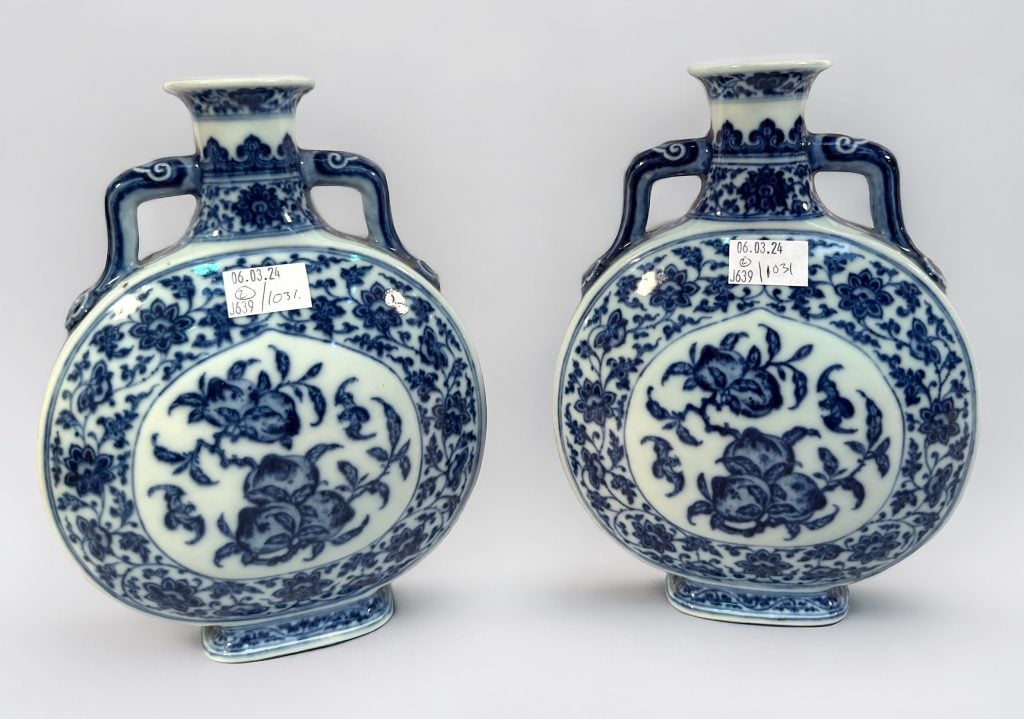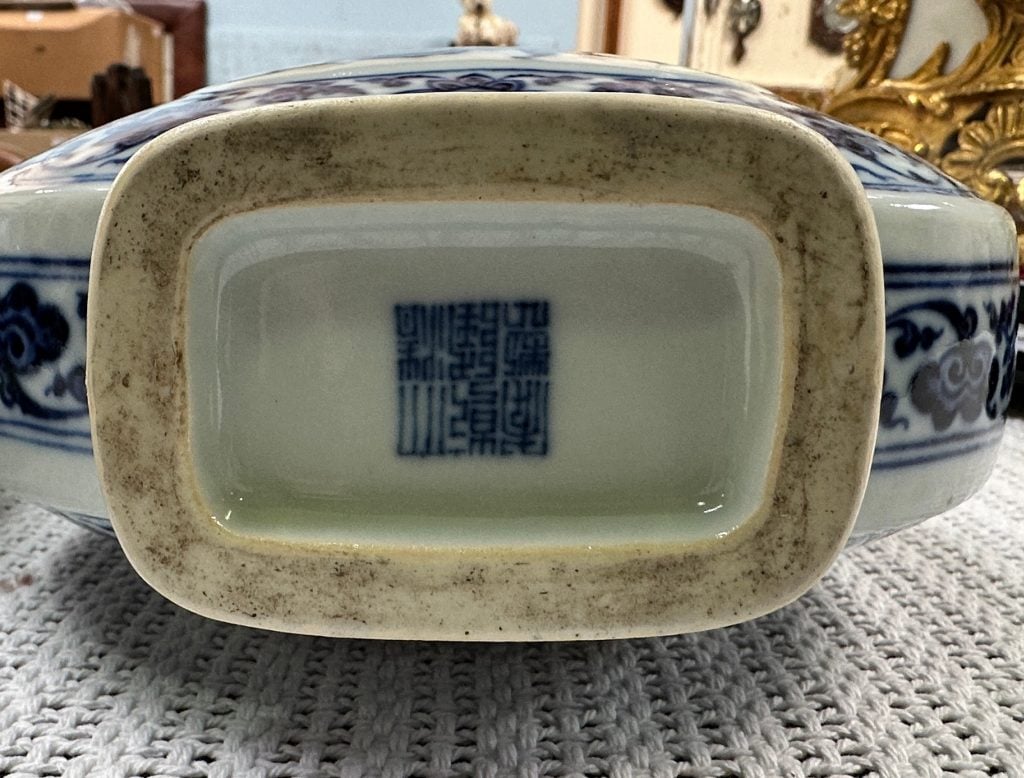Auctions
A Pair of Chinese Vases Rescued From an Attic Make $325,000 at Auction
Two 18th-century porcelain vases were initially mistaken for modern reproductions and valued at about $125.

Two 18th-century Chinese vases have sold for £260,000 or roughly $327,000 at an auction at Nesbits. They belonged to a “working class” vendor in his late 30s, who found them while clearing out his mother’s home in Portsmouth, the U.K., according to the Daily Mail.
The blue and white ceramic vases, also described as moon flasks, are just under 10 inches tall and decorated with images of bats and peaches, both of which hold special meaning in Chinese culture. Bats represent wealth, virtue, health, happiness, and a peaceful death. Peaches, associated with the Daoist god of longevity Shoulao, also stand for health and happiness, and are a prominent symbol of spring.
Chinese pottery has a long history, with some of the earliest examples showing up around the beginning of the Shang dynasty, between 1600 and 1045 B.C.E. Generally made from clay, bronze, and ceramics, traditional wine vessels like the ones found in Portsmouth—known as hu in China—never strayed far from their original design: a pear-shaped body with a narrow neck.
Collectors’ appreciation for Chinese pottery is slightly less ancient, originating during the rule of the antiques-collecting emperor Qianlong in the 18th century. Blue and white porcelain, which first appeared during the Tang dynasty (618–906 C.E.) in Jiangxi province and is made using special clay and firing technologies, became sought after by collectors under Qianlong.

Marks on the bottom of two Chinese porcelains sold at Nesbits Auctions. Courtesy Nesbits.
Authenticating the two Portsmouth vases was easier said than done. While their bases bore the six-character marking of Qianlong himself, such markings are frequently printed on forgeries and, as a result, were not enough to prove their legitimacy. Because of their pristine condition, local antiques experts consulted by Nesbits Auctions, which sold the vases, concluded they were modern reproductions worth £100 ($125) at most.
It wasn’t until photos of the vases were posted online that this initial valuation was called into question. “Ahead of the sale there was a very heavy amount of interest in them,” said Dan Tricker, a salesroom manager at Nesbits. After meeting with professional collectors of such material, the vases were found to date from Qianlong’s reign, and the asking price skyrocketed.
The Daily Mail reports that after 20 minutes of bidding, they went to a Chinese buyer for $327,000, some 2,600 times their valuation, early last month.
Happiest of all was the working-class vendor who found the vases. “He is renovating his home and had thought he could not afford to go on holiday this year,” Tricker said, “but now he can go on multiple times.”





